SWEET LIKE HONEY

BY ELISABETH C TUNSTALL


BY ELISABETH C TUNSTALL
Honey is the sweet, ever so sticky substance made by some pretty cool and hardworking bees. We’ve been eating honey since the beginning of time. Spread it on a biscuit, drop it in some tea or use it to bake and you got yourself a tasty treat! So how is this natural sweetener made?
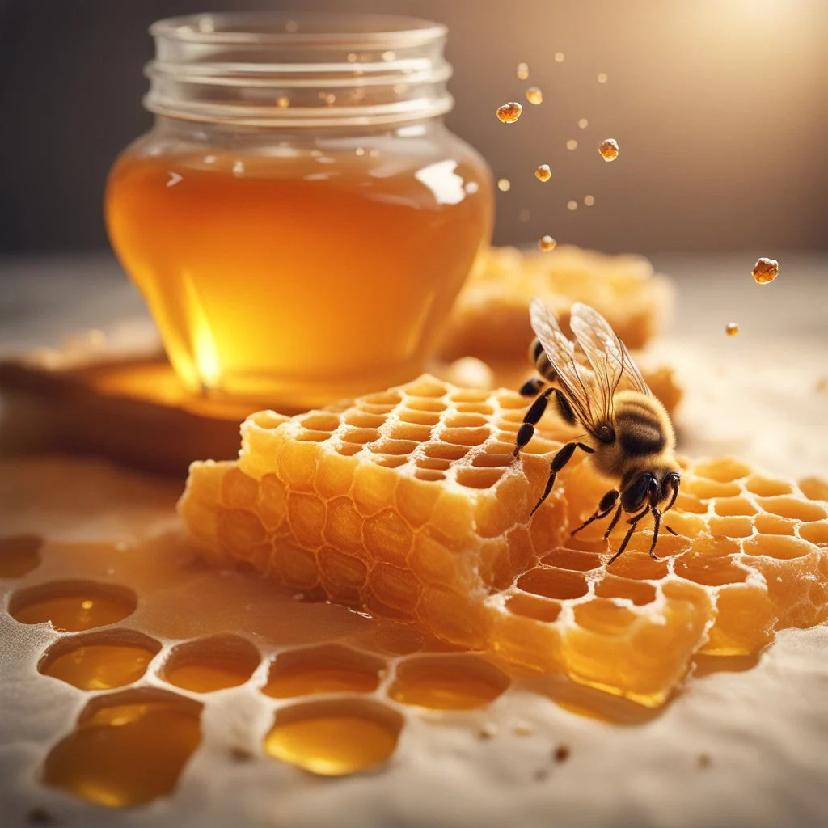

Of the 20,000 species of bees, only the honeybees make the honey we are used to consuming. These type of bees create honey to feed themselves and as a means to store and save food for colder months when they are not able to leave their hives as often.
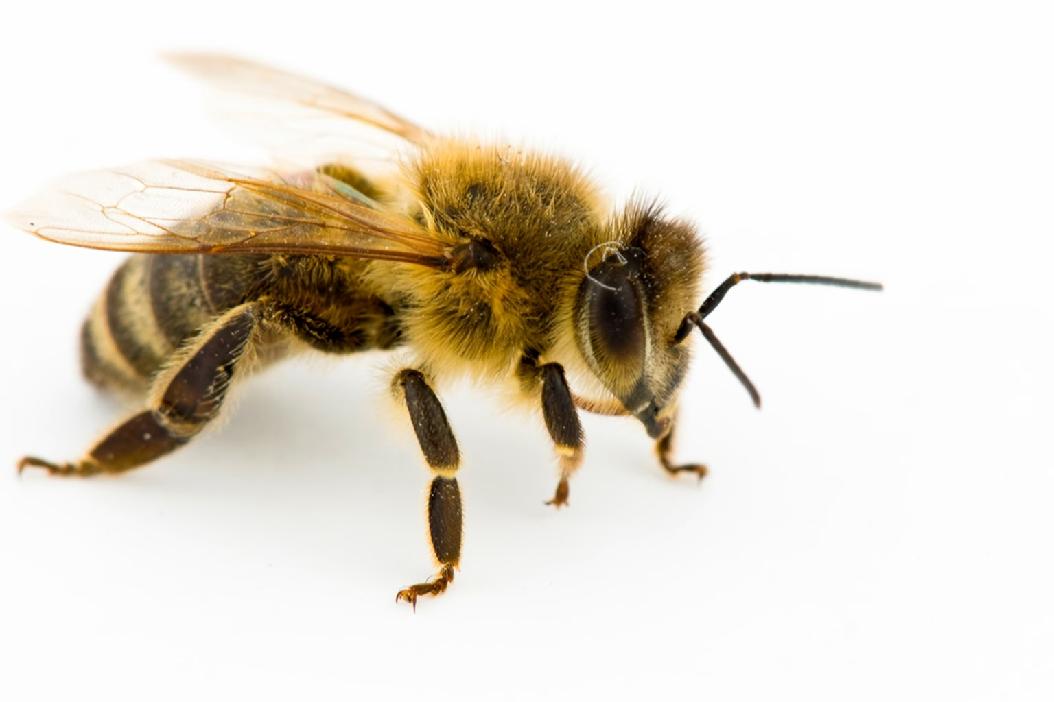
Forager bees collect nectar from flowering plants and store it in their stomachs, breaking down the nectar into simple sugars. The forager bees then give the nectar to younger house bees who then pass the nectar amongst each other from mouth to mouth, further breaking down the sugars and reducing water content.


This substance is then transferred to the hexagonal cells of the honeycomb. To reduce the water content of the nectar even more the bees fan their wings to evaporate it. The bees then seal the honeycomb with a wax capping to preserve the honey indefinitely. And just like that, honey is made. Honey's color and flavor depends on the nectar collected by the bees. There are about 320 different varieties of honey, which vary in color, odor and flavor.


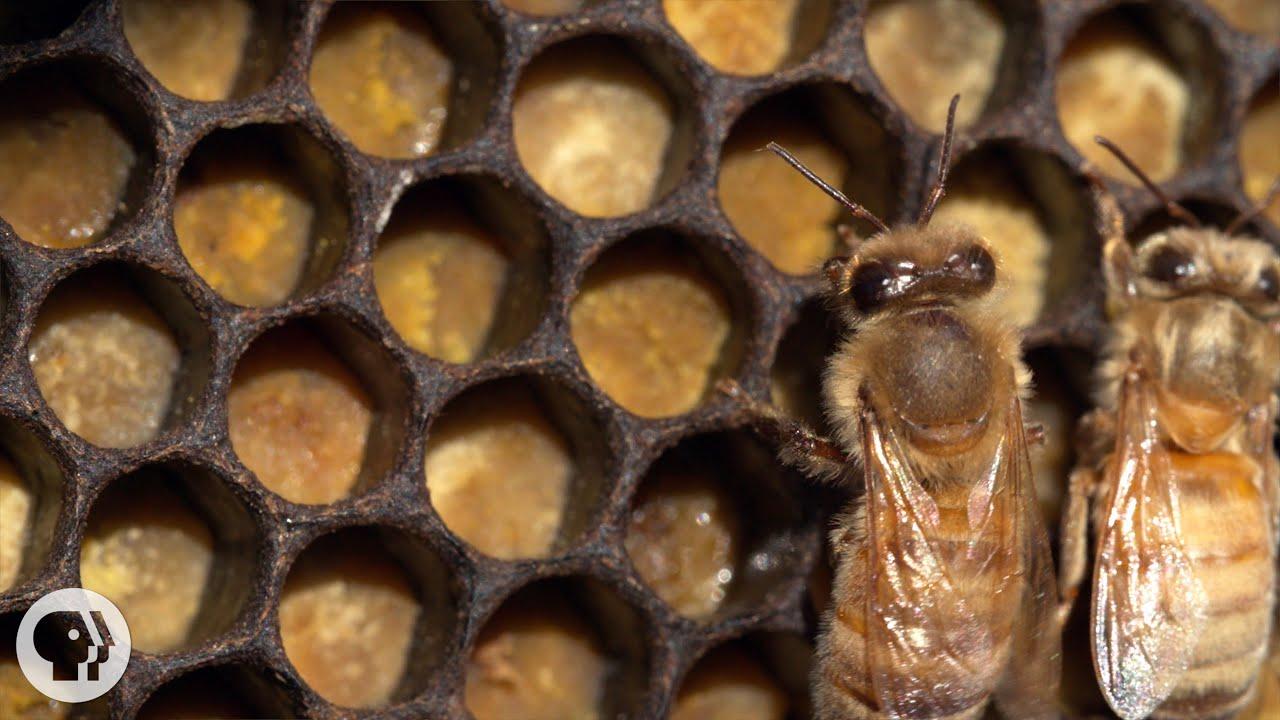
The demand for honey continues to increase as it is considered the healthier substitute to sugar that is rich in antioxidants, anti-inflammatory properties and antibacterial agents. In fact, due to honey’s low water content and acidic nature, most bacteria and other microbes cannot reproduce in honey. So what are some health benefits of this liquid gold?
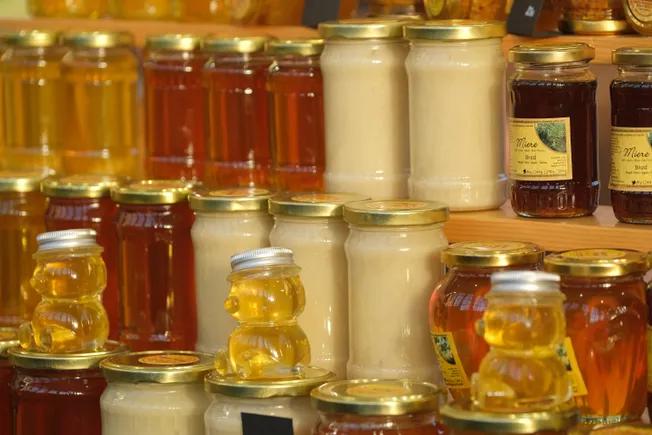


The antioxidant properties in honey are said to reduce the risk of heart disease.


Eucalyptus honey, citrus honey and/or labiatae honey serve as cough suppressant for people with upper respiratory infections. Honey is believed to help relieve conditions such as diarrhea associated with gastroenteritis.
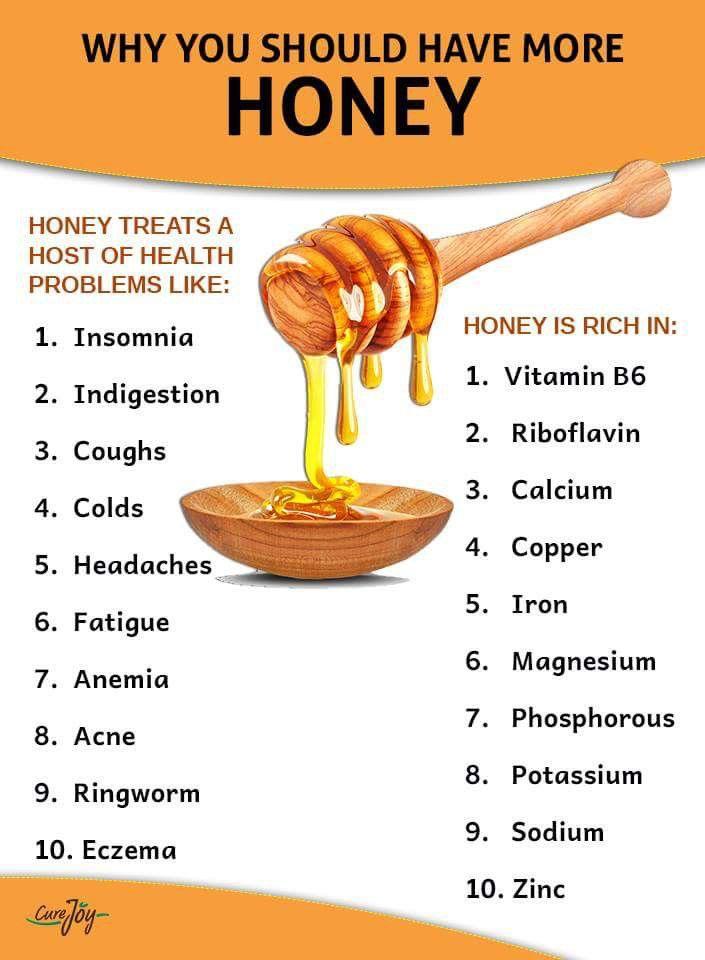

Studies indicate that honey might be able to provide relief to those suffering from depression or anxiety as well as help prevent memory disorders.

Topical use of medical-grade honey is used for healing wounds and burns as well as managing skin conditions such as eczema and dermatitis.
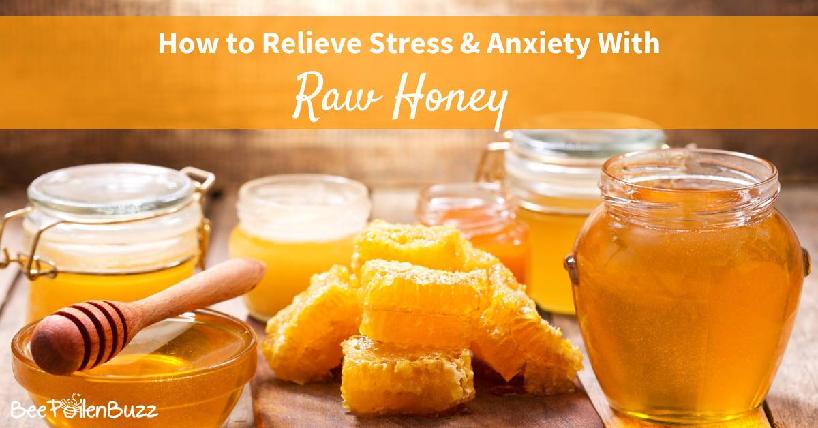

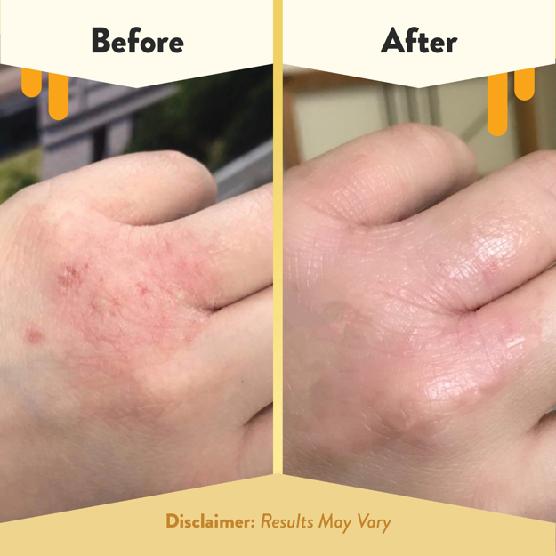


Studies indicate that honey might be able to provide relief to those suffering from depression or anxiety as well as help prevent memory disorders.

Topical use of medical-grade honey is used for healing wounds and burns as well as managing skin conditions such as eczema and dermatitis.




Honey is not only good for you but it taste delicious. Now what happens to the the body when you eat something sweet, particularly the brain? The brain has a reward system called the mesolimbic dopamine system, which gets activated. Dopamine is a chemical in the brain that gets released by neurons to help boost your mood. This in turn reinforces the behavior to eat something sweet again.

So spiritually, why is honey important?
The word honey is mentioned 62 times throughout the entire bible and the word honeycomb is mentioned 10 times. Honey symbolizes God’s word as well as the blessings and prosperity we gain from obeying his law. In Proverbs 16: 24, “Pleasant words are as an honeycomb, sweet to the soul, and health to the bones.” To consume honey is also liken to receiving Wisdom, Knowledge and Understanding, our heavenly mothers. The female side of God is a part of the the hidden mysteries of God’s word that not everyone is privy to or can understand.
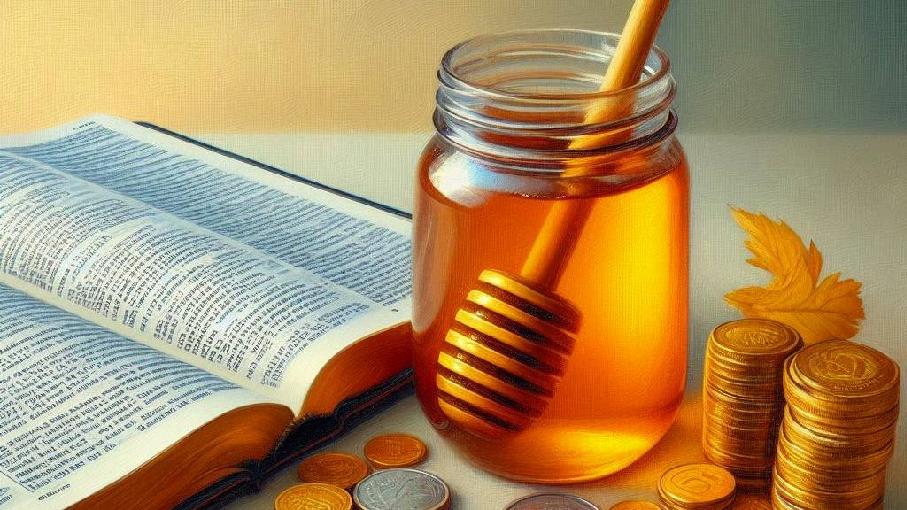

Let us review some scriptures. “My son, eat thou honey, because it is good; and the honeycomb, which is sweet to thy taste: So shall the knowledge of wisdom be unto thy soul: when thou hast found it, then there shall be a reward, and thy expectation shall not be cut off,” (Proverbs 24: 13-14). In Ecclesiasticus 24: 18-20, “I am the mother of fair love, and fear, and knowledge, and holy hope: I therefore, being eternal, am given to all my children which are named of him.
Come unto me, all ye that be desirous of me, and fill yourselves with my fruits. For my memorial is sweeter than honey, and mine inheritance than the honeycomb.”


Like honey, the word of God is healing in nature, keeping sin at bay as honey does with bacteria. But the word not only heals us. It brings us pleasure and delight just as the sweetness of honey does when you taste it. It more than satisfies us, the word makes us feel good, activating our pleasure system and reinforcing our daily desire to learn about the truth.


I would now like to draw your attention to I Samuel 14: 24-29. As you can see, King Saul made a very foolish oath while in battle. His soldiers were completely depleted and desperately in need of sustenance. However, when Johnathan ate of the honey, it invigorated him and his eyes were enlightened. Invigorate means to give strength and energy. Enlighten means to give knowledge or understanding to, to illuminate or shed light on. That is what the word of God does for us. It gives us energy and strength to serve and obey. The word also opens our eyes to truly see God, giving us spiritual clarity.



When I thought of how honey is referenced in the Bible, one phrase immediately came to my mind, “a land flowing with milk and honey.” This phrase is used multiple times in the scriptures.


When
hear the phrase what are your first thoughts?


Let’s break it down. Honey is known for its richness in texture and taste. The sweetness of honey is pleasant. Again, it symbolizes his word and all the goodness, blessings and prosperity that comes with it. Milk is also known for it’s richness and associated with fertility but more importantly, it symbolizes the fundamentals of God’s word, which is his law.

Now the Promise Land was the land of Israel that was given to the descendants of Abraham, Isaac and Jacob. Literally speaking, Israel once was a pleasant, rich, abundant and fertile land that was excellent for growing crops and shepherding and figuratively speaking was a land flowing with milk and honey, (Exodus 3: 8). But this is from a common standpoint.
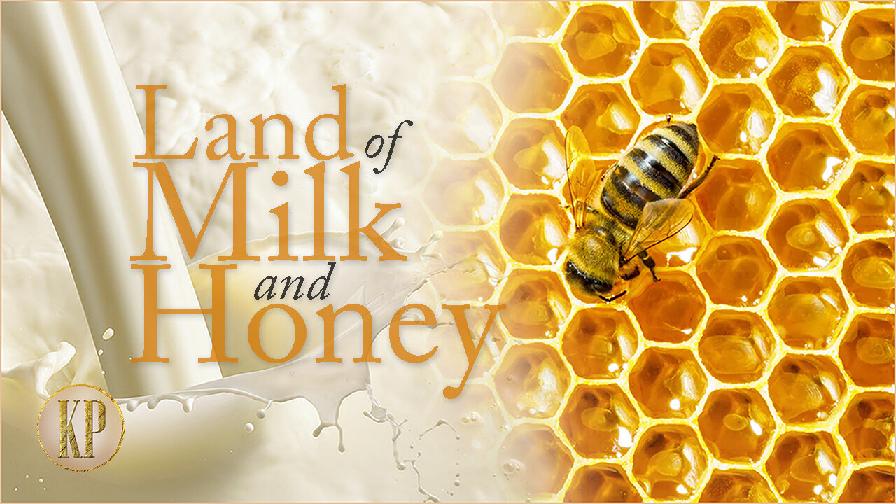



More importantly, because God’s people were in the Promise Land, this place became the center of truth, again, a land flowing with our spiritual food and drink, that of milk and honey. Unfortunately, we know how the story goes. Israel sinned and was punished. They were kicked out of the Promised Land with many slaughtered and others dispersed to other countries, only leaving a mere remnant.


We lost our land and identity and became strangers in foreign lands. Not only were the people punished but the land of Israel itself. If you look at this country now, it is a vast contrast from what it once was. It is not as lush and green with 60% of the land being a desert. It has become a place of violence and bloodshed with constant war and upheaval. This is all the result of sin.




Fortunately for us, our story has not ended. The Lord has made a covenant to return us back to the Promise Land, which will be more beautiful and glorious than it ever was, (Jeremiah 32: 37-42). He has promised to save us. We will be beautiful, prosperous and glorious. We will radiate with immortality. This is the heritage and blessing of Jacob that comes to only those that obey the laws. This is also that spiritual honey that we look forward to.


Just as physical honey is complex in its composition, spiritual honey is complex in symbolism with no singular meaning. It encompasses the word of God, it is Wisdom, Knowledge and Understanding and it is the goodness and blessing of our salvation. So the next time you taste of honey, take time to meditate on the spiritual matters for honey is food not only for the body but for your heart, mind and soul. May God be with you all. Amen.
